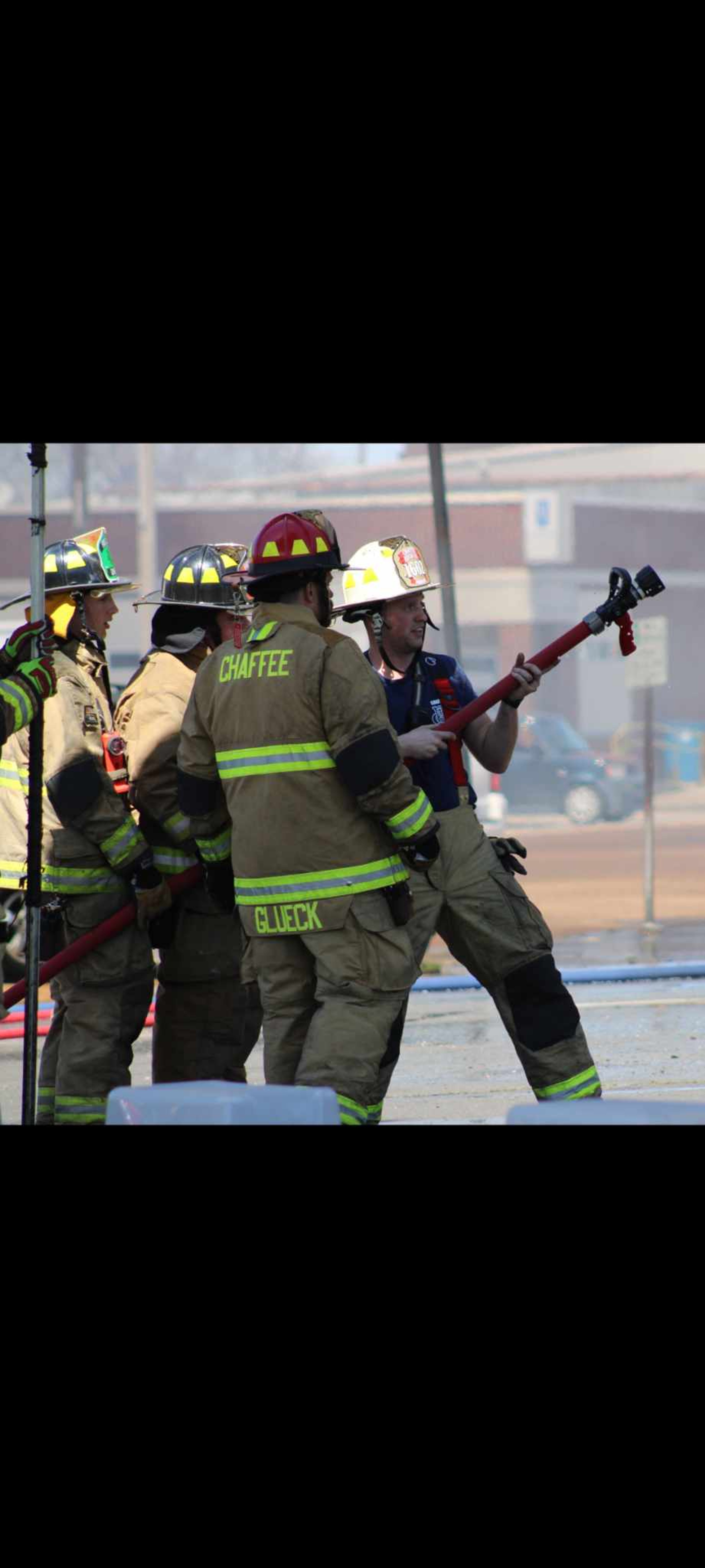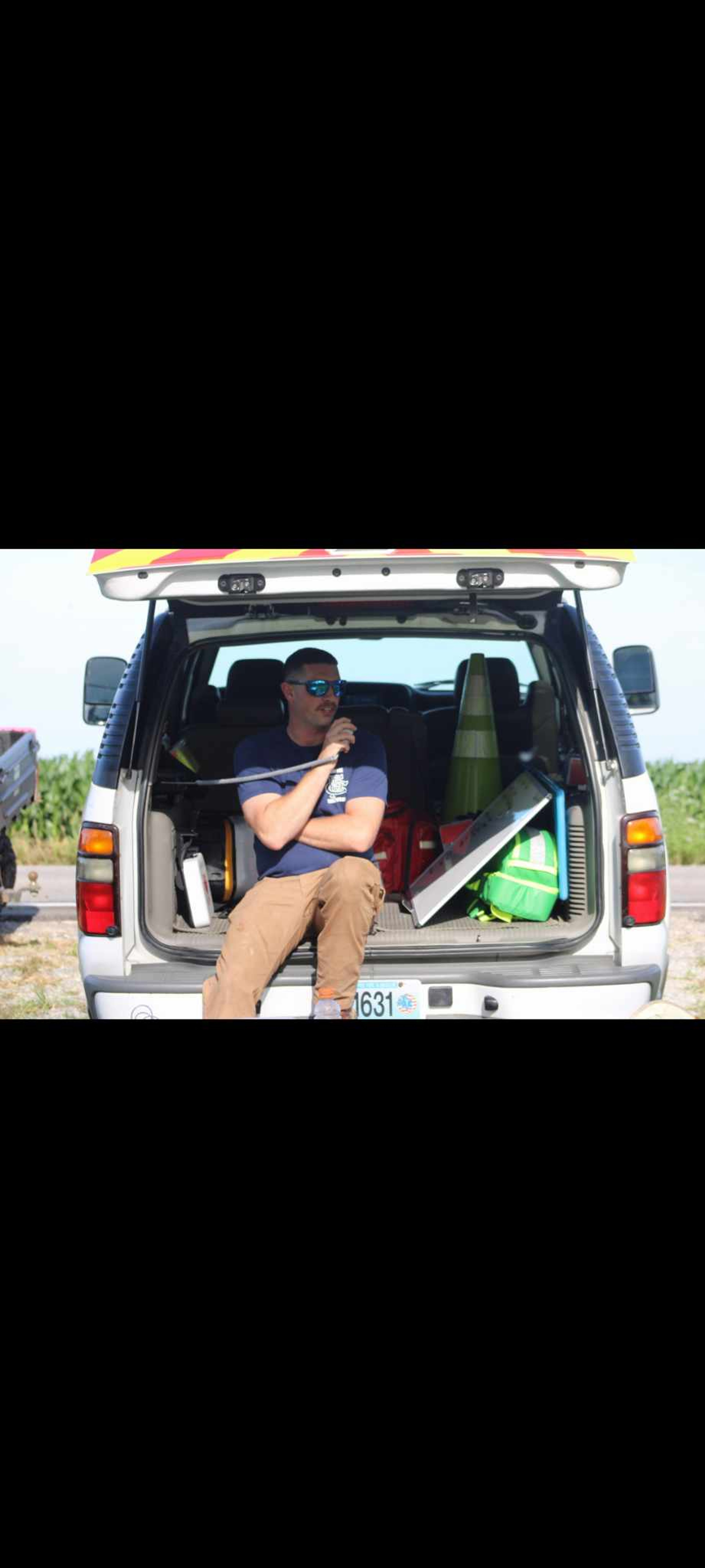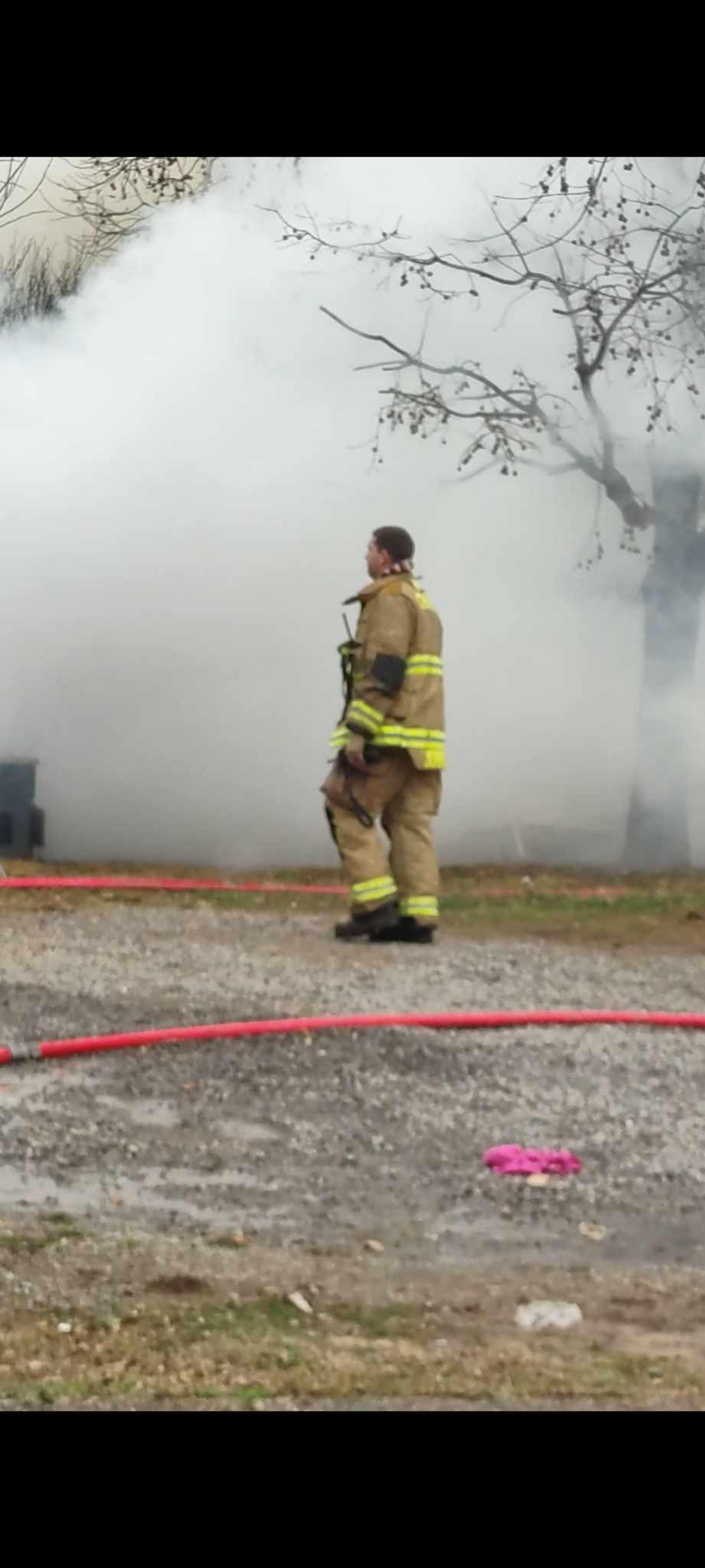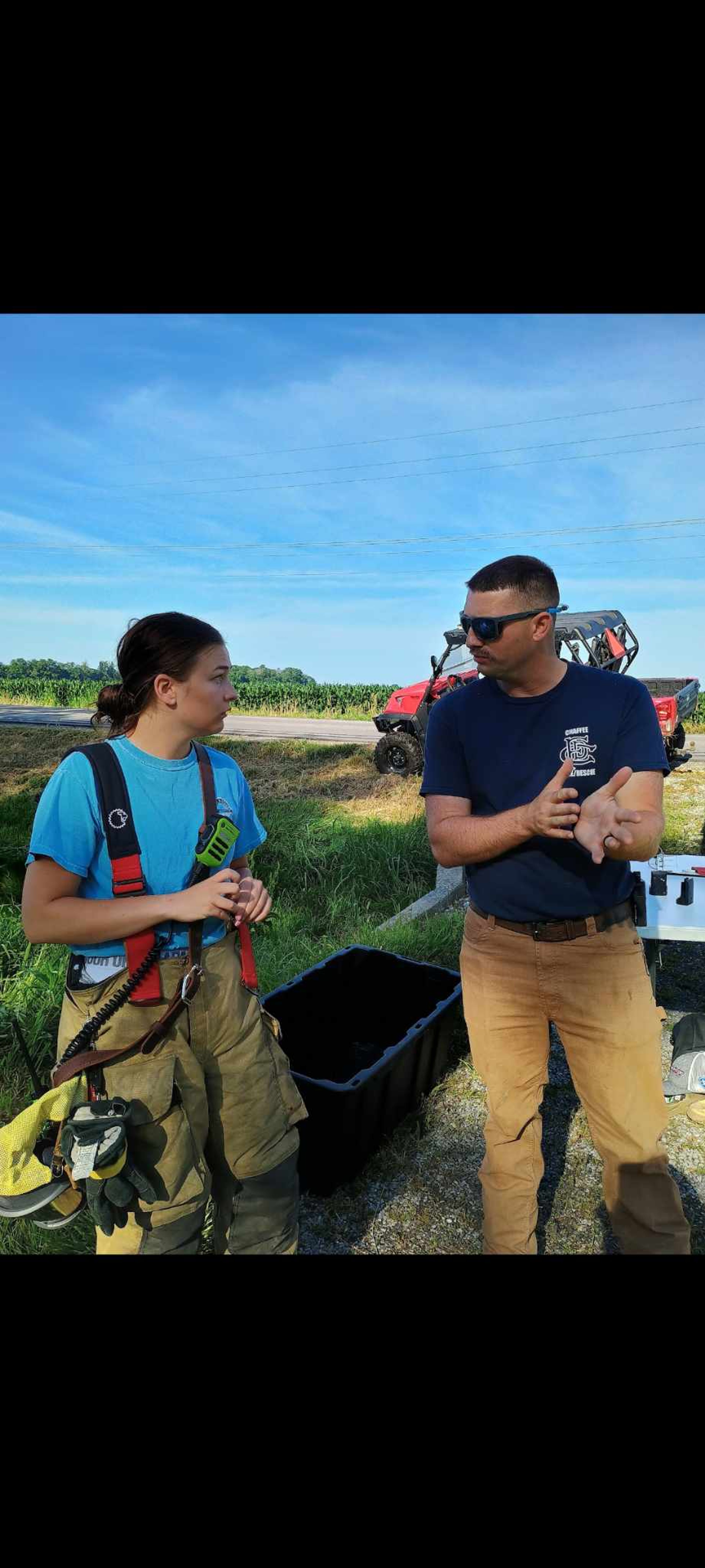First Responders Month: The dedication and challenges of Chaffee's volunteer firefighters
Chaffee's volunteer firefighters exemplify dedication and resilience. From inspiring beginnings to rigorous training, discover how these community heroes balance personal ties with their life-saving duties.
In the small town of Chaffee, the journey to becoming a volunteer firefighter often begins with a simple moment of inspiration.
For many, such as Cody Johnson, now assistant fire chief, it was the sight of a fire that sparked a commitment to serve his community. Since joining the Chaffee Fire Department in July 2013 at the age of 18, he has risen through the ranks to become a key leader in a team of dedicated volunteers.
“I wasn't sure what I wanted to do when I was a senior in high school. I thought I wanted to maybe be a police officer. I happened to be driving down the street one day and saw that there was a fire. I stopped and watched for a little while, and I was like, that's pretty cool. So I thought that looked fun and looked like something I wanted to try to do. So that's kind of where it all began. There was nothing really specific that happened, other than I just happened to be driving down the street. Right place, right time,” Johnson said.
The Chaffee Fire Department can hold a roster of 20, and it is currently filled with 16 active members. The roster includes a diverse group, from a high school cadet to seasoned veterans such as Bob Sanders, who has served for around 54 years. The department’s median age is 30, highlighting a blend of youthful energy and experienced guidance.
Chaffee’s program has transformed lives, offering second chances to individuals such as Eli Glueck, who joined as a cadet. He is now pursuing a career as a paramedic, thanks to the department’s mentorship.
Volunteers are equipped with the skills necessary to handle a wide range of emergencies, from house fires to medical emergencies, Johnson said. The department often gets requests from homeowners to conduct controlled burns for training purposes, adhering to strict safety guidelines set by the National Fire Protection Association.
“We'll take the team in, show them how fire develops and put a little bit of water on it, darken the room down, get them used to a little bit of heat and let them see some smoke conditions. And then we just rotate through the people until that room becomes so burnt that, you know, it doesn't hold fire anymore,” he said. "So we'll put that fire out and move on to another room in the house. Typically, a house will let us burn three to five rooms. So it's not the typical, like, we just go in and light a fire and let the whole thing go. It's actually very coordinated. A lot of thought goes into it. A lot of safety goes into it.”
The department runs approximately 600 calls a year. Volunteers dedicate countless hours to training and responding to emergencies, driven by a shared sense of duty and camaraderie.
“A lot of people tend to look down on volunteer departments because they're just, the everyday guy that works out in the farm field all day, and then, you know, occasionally we'll go fight a fire. But we have good training objectives and great equipment for being a town of 3,000 people,” Johnson explained. "We have some of the best equipment in the area, truthfully, and getting to go to those training, messing with that equipment has done nothing but prepare me to be better at Cape Fore. The difference is the opportunities that Cape is a lot more because, again, there's 60,000 people, someone's calling 911, all the time.”
Being a volunteer firefighter in a small town such as Chaffee has unique challenges and rewards.
“One of the coolest things is, this sounds cliche, but you're serving in the community that you grew up in, so that's super cool, but it's also part of the worst thing about it. I'm there for people that I know on their worst days, and I take pride that we made that person better. At the same time, whenever you run a terrible call and, you know, somebody dies or gets seriously injured, that might be your best friend or someone that you grew up with,” Johnson said. “So, you get that aspect of it. I get to help all my friends and family members I grew up with but then I also had to take care of them on the worst day of their life, and I get to see them in their worst possible moments. So it's very challenging to balance those two things overall. I wouldn't change it ever. I love serving in the community I grew up in.”
Johnson emphasized the sense of pride and fulfillment that comes from watching volunteers grow and succeed. The fire service is often described as a brotherhood and sisterhood, where members support each other, both professionally and personally.
“There's a sense of pride or good feeling, whenever you watch somebody that you brought in that had no idea what to do or how to do it, and you get to train them, send them to classes, then they get to work side by side with you. It's really neat to watch. I mean, it's, it's like watching your little sister or your little brother grow up and be somebody, and it's the same way in the fire service, very neat,” Johnson said.
When asked what he would say a great first responder is Johnson said that someone who can show up. He said being a volunteer has lots of time commitments with the twice-a-month three-hour training, the calls each day to help and the gas each volunteer has to use to get to and from the calls.
“Just showing up and having an open mind on different concepts of how things are done. Essentially, if you can show up to meetings, you can show up to training, you can show up to the call and have an open mind. ... Be coachable; be teachable. You'll go a long way in a volunteer setting,” Johnson said.
Johnson welcomes those in the community considering volunteering with the department.
“Come on with it. I'm all about putting people in the department and giving them a chance at it. It takes a special person to be able to do it, and the only way you're going to know if you can do it is if you try it out. So come on, put your application in, give me a call or text, whatever works for you, and I'd be more than happy to have a conversation about it. The opportunities are there.”
Connect with the Southeast Missourian Newsroom:
For corrections to this story or other insights for the editor, click here. To submit a letter to the editor, click here. To learn about the Southeast Missourian’s AI Policy, click here.















